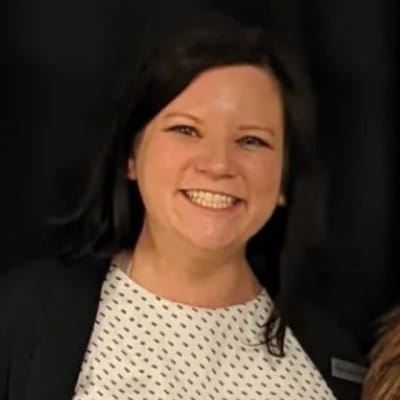Finally… Have That Difficult Conversation
Tired of Having To Dodge Hard Issues With People?
Have internationally-recognized peacemaker and mediator Doug Noll facilitate your difficult conversation. Read on to learn more. To book your conversation, click here.
Karen and John Had A Big Problem!
They had been in a dating relationship for some time, but problems kept coming up. John felt like he could never do anything right. Every time he planned something, he felt like Karen went off the rails emotionally. He couldn't talk about it because he was afraid that Karen would go off on him.
Karen felt unappreciated, unheard, and disrespected by John. She cared for him a lot and wanted the relationship to work, but was coming to the end of the line. She was stressed and unhappy. It didn't help that she was emotionally sensitive to everything and everyone around her.
They needed to have a difficult conversation, but were both afraid of the consequences! Neither Karen or John had the skills or the experience to talk about deeply emotional subjects in their relationship. So they both tried to ignore the problem, which only made it worse.
Do you have a similar difficult conversation you are avoiding? Maybe it’s with one of your parents. Or your partner. Or a colleague at work. Maybe it’s with your adult children or an old friend. Something has come between you and it’s awkward. You may feel stressed and even a little embarrassed. You know the conversation should take place, but it’s frankly a little scary.

Difficult Conversations Are, Well, Difficult
- Do you avoid talking about difficult issues that have come between you and someone you know?
- Do you feel anxious when talking about highly emotional topics?
- Are you afraid that the other person will become angry and lash out?
- Do you fear rejection?
- Are you stressed out thinking about a conversation that has to happen, but may be painful?
- Do you feel uneasy when you think about the conversation you have to have?
You Are Not Alone
Everyone has faced a difficult conversation. Typical issues involve relationship boundaries, finances, unhappiness in the relationship, sex, unmet emotional needs, betrayal of trust, what you want for the future, health concerns, how you define your relationship, among many others.
Karen and John's Difficult Conversation
I don't know how Karen and John found me, but they did. I was offering free facilitation of difficult conversations to beta-test some new ideas. They scheduled a Zoom call with me.
At the appointed time, we all showed up. I told them that the purpose of the call was to listen and reflect.
"Who wants to go first and tell us what's going on?" I asked.
John said, "I think Karen should go first."
I laughed, and said, "The rule is whoever volunteers someone else goes first. You're up John."
They were nervous and anxious because this conversation might make or break their relationship. John was not comfortable talking about his feelings. Karen was on the edge of tears.
John said, "When I plan for us to do something fun, I work really hard at making it perfect. For whatever reason, Karen gets super emotional and tries to take over and control everything. I just wished she would relax and have fun, trusting that I've done a great job setting us up for a great time together."

The Three-Step Secret to Having A Difficult Conversation
I've discovered a three-step process for having a difficult conversation. I've trained inmates in maximum security prisons to be powerful peacemakers to stop prison violence and I've taught these skills to analysts at the Congressional Budget Office how to calm members of Congress and staff.
Ignore the words. When I ignore the words, I can focus on more important information.
Read the emotions. I read the emotions of the speaker, using a layered approach I have developed.
Reflect back the emotions with a "you" statement. I have discovered that telling people what they are feeling is deeply validating.
John's Feelings
I said, "John, you feel frustrated and stressed. You don't feel respected and you feel hurt. You are confused and sad because you want Karen to have a good time with you."
John said, "That's right. That's exactly how I feel."
I turned to Karen and asked, "Karen, could you please tell John what he was feeling as he shared his story? Just repeat what I said."
Karen said, "John, you are upset, stressed, and unhappy. You try hard to set things up for us to have a good time and you get frustrated at my reaction."
"That's right, Karen. I do," said John.
We continued on. As John felt safer with the process, he opened up further. Karen and I reflected his feelings back to him to make sure we understood what he was experiencing. Finally, he stopped, and I asked, "Anything else, John?"
"No. That's pretty much it," he replied.
The Issues Around Difficult Conversations Is Exploding
As a mediator and master peacemaker, I have observed that the need for difficult conversations is growing exponentially.
- Polarized politics
- Culture wars
- Race and religion
- Sex and gender issues
- Torn relationships
- Issues around money and the lack of it
- Disrespect
- Hurt feelings
The issues are endless. Yet no one has had a solution for talking about the things that really matter.
Karen's Story
Now it was Karen's turn.
"John just shows up here at my place when he wants. It feels like I am just a watering hole in his life. I care for John a lot and I want this relationship to work, but I just don't know if we can do it. Maybe we should just call it quits and move on with our lives," said Karen. She started to cry.
I said, "Karen, you feel ignored and disrespected. You don't feel heard. You don't feel supported or appreciated, and you feel taken advantage of. You want the relationship to succeed and you are worried that it won't. The whole thing makes you so sad, you cry. You feel abandoned and unloved."
"Yes, that's right," Karen said.
I turned to John and said, "John, can you tell Karen what she is feeling?"
John was silent for a moment, gathering his thoughts. This was hard for him. He finally said, "Karen, you feel unloved and unappreciated. You are sensitive and you feel every slight and hurt deeply. You feel ignored, disrespected, and unappreciated. You are sad and lonely in our relationship."
Karen wiped away her tears and said, "Thank you. I feel heard for the first time."
DIFFICULT CONVERSATIONS WITH DOUG
How would you feel if you could have that difficult conversation in a safe, supporting environment?
- Soothed
- Safe
- Relieved
- Grateful
- Hopeful
I can help you have that difficult conversation. You have a choice about how you want to move forward. I charge $1,500 for an hour session. However, I will charge you nothing if you agree that our conversation will be live-streamed on YouTube so that others can see the power of listening. Think of it as a live reality-TV show, but without the Hollywood stuff.
My passion is teaching people how to listen others into existence through my De-Escalate Emotional People (DEEP) process. I have developed a unique set of listening skills that allows anyone to have a difficult conversation without feeling anxious or upset.
Imagine feeling
- Heard
- Understood
- Supported
- Appreciated, and
- Validated
By the person you are having issues with.
It may sound impossible, but it happens every day, and it’s what I do.
- 1The DEEP process: Is all about listening, not talking. When you listen to and validate another person's feelings, magic happens.
- 2Create emotional safety.
- 3Validate each other's deepest, unspoken emotions.
- 4Feel heard and understood, perhaps for the first time.
- 5Develop confidence that you can have a difficult conversation and strengthen your relationship.
What People Are Saying About Doug's Work

"It was profound"
" I was dealing with two fifth graders really getting into it. One had emotional instability and the other has autism, so both process rather differently.
I have been using affect labeling and started right in with modeling how they are feeling. Then, I asked each of them to share what happened and as they listened, they were able to talk about labeling the feelings. They came to realize how their actions escalated each other, and how the other felt. This is the first time I had people affect label each other, and it was profound. So thank you once again for this work."
Kristin Hankins
- Elementary School Principal

“He feels heard and understood ..."
“I've been using these skills with my 10 year old grandson, not as a means of de-escalation, but to avoid conflict altogether. Conversations that used to become arguments no longer do. In the past, he would tell me a story, in which he was always the victim (in his mind), and I would immediately see what his part was and gently try to share it with him, in hopes he'd learn from the experience.
His response was to shut down and get defensive. Now, when he tells me the story, I speak to the emotions instead. He feels heard and understood and has been so much more open to feedback. It has had such an amazing impact on our communication, which makes for an even better relationship.
I wanted to share this with you because I think it's remarkable that a process you've developed to de-escalate conflict can also work to avoid it altogether. Thank you for that.
"
Dottie Sinor

“How did I live before without this??"
“Just letting you know I love your work and your teaching.
Helping with my 19 year old, special needs son, the mental patients where I work, and the frustrated but sane landlord of my son.
How did I live before without this? "
Leonard Manning
Schedule Your Difficult Conversation
Here’s how it works:
You and the other person decide whether you want to pay for a private session ($1,500) or a free session that will be live-streamed.
Everyone agrees to the legal terms and conditions of the session.
For a private session, you pay when you book the call
You and the other person join me on the scheduled Zoom call.
I will introduce the process to you.
One of you will start with your story—your perception of what is between you.
I will listen and reflect to you what you have said and felt.
Then the other person will reflect to you what you have said and felt.
When you feel that you have been deeply heard, we will switch roles.
You will become the listener.
The other person will become the speaker.
I will listen and reflect to the speaker what was said and felt.
Then you will reflect to the speaker what was said and felt.
When the other person feels deeply heard, we will be complete.
We’ll do a short debrief, and close the conversation.
Douglas E. Noll, JD, MA
About Doug Noll
Douglas E. Noll, JD, MA left a successful career as a trial lawyer to become a peacemaker. His calling is to serve humanity, and he executes his calling at many levels. He is an award-winning author, teacher, trainer, and a highly experienced mediator. Doug’s work carries him from international work to helping people resolve deep interpersonal and ideological conflicts to training life inmates to be peacemakers and mediators in maximum-security prisons.
His fourth book, De-Escalate: How to Calm an Angry Person in 90 Seconds or Less, was published by Beyond Word Publishing in September of 2017. De-Escalate is now in four languages and its second printing.
Ready!
Step #1 Enter Your Best Email Address
You will be re-directed to a page where you may select a private, paid conversation or free, public conversation.
Free? Really?
Yes, this service is absolutely free if you are willing to have your conversation live-streamed. Why? I am beta-testing the idea of providing online services for difficult conversations and de-escalating strong emotions. The only way I will know if the idea works is to try it. I am confident that you will feel safe and connected in your difficult conversation, and I want to build a library of conversations to demonstrate to the world that this works. So, I am offering my services to you at no cost and with no strings if the session is public so others can watch and learn. However, you may want a private session. In that case, I will charge you a fee of $1,500 and the conversation will remain confidential.
You may want to buy my book, purchase one of my courses, enroll in my online group coaching, bring me in to your organization for a workshop, or even hire me to coach you personally. But that comes later and only if you decide to jump into this work.
My calendar fills fast so book your call now. If you cannot find any spaces, email me and I will see if I can fit you in.
Copyright 2022 - Douglas E. Noll